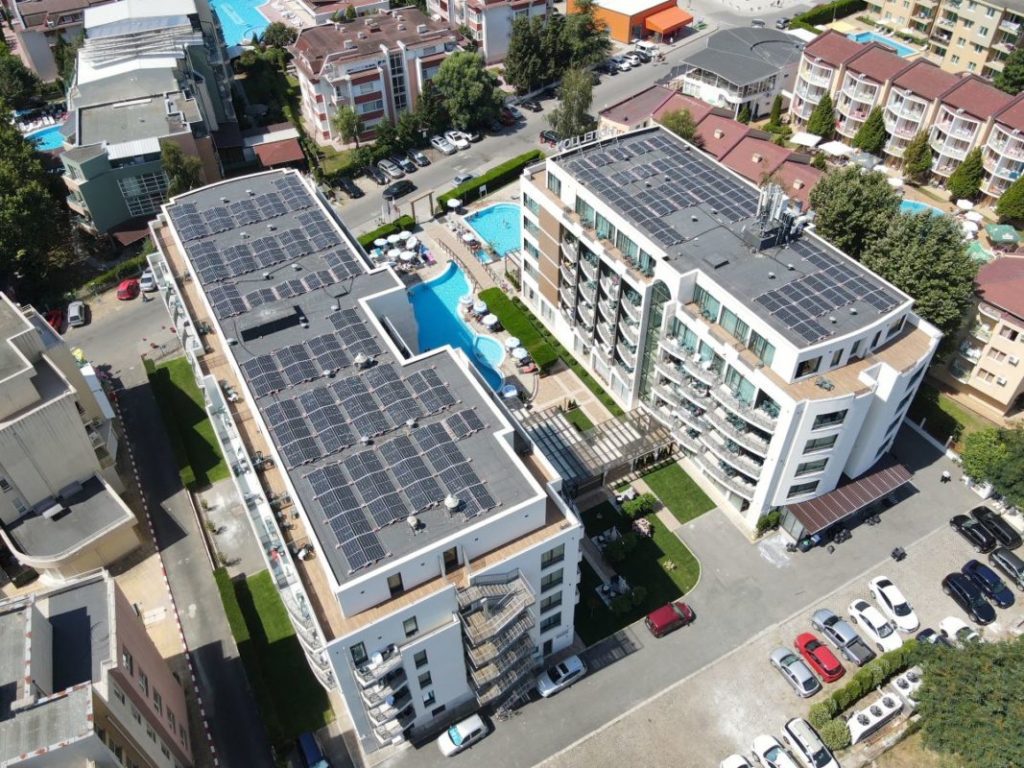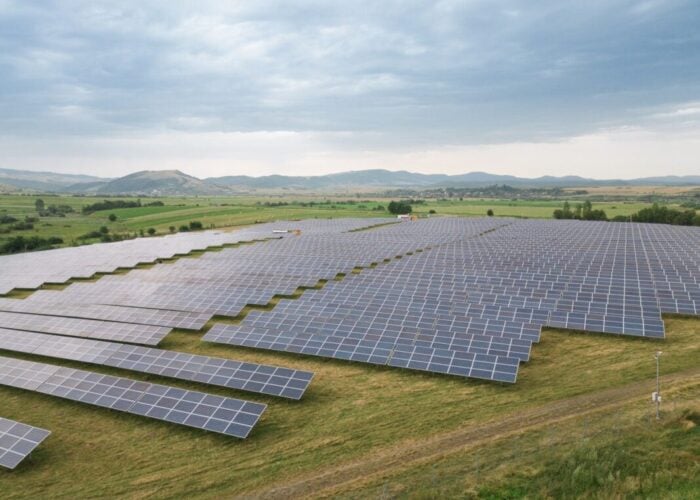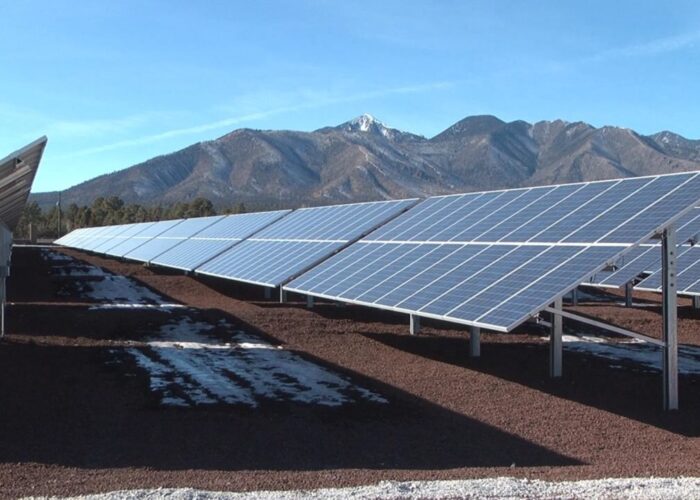
Jonathan Touriño Jacobo caught up with Vladimir Tabutov, founder and CEO of Bulgarian solar power project developer HEC Solar, following Solar Media’s Large Scale Solar Europe event in Lisbon, Portugal. They spoke about recent and upcoming changes in the Bulgarian regulations regime for adopting renewable energy technology.
Bulgaria’s renewables legislation
During the last two parliaments, Bulgarian legislation in the field of renewable energy and solar energy in particular has made it much easier for various groups of developers to realise their solar projects. Both the Renewable Energy Law and the Energy Law have been amended in a way which significantly reduced the time and complexity of the development process. Both in the systems for own consumption of households and industrial users is drastically reduced.
Unlock unlimited access for 12 whole months of distinctive global analysis
Photovoltaics International is now included.
- Regular insight and analysis of the industry’s biggest developments
- In-depth interviews with the industry’s leading figures
- Unlimited digital access to the PV Tech Power journal catalogue
- Unlimited digital access to the Photovoltaics International journal catalogue
- Access to more than 1,000 technical papers
- Discounts on Solar Media’s portfolio of events, in-person and virtual
Through the changes in the law, a new section, “Electricity storage”, was created, which regulates this activity as an operator, a storage facility, equal access to the transmission and distribution electricity networks and equal access to all electricity markets and possible balancing mechanisms the capacity.
The proposed amendments to the Energy Law provide an opportunity for the operator of the transmission network to propose a temporary connection scheme for all or part of the requested power in cases where the purpose of connection is to carry out reconstruction and development of the network.
Thus, generators and customers will have the opportunity to choose whether to join after the relevant network changes have been made or to take advantage of the proposed temporary connection scheme by agreeing to join part of the requested capacity and/or reduce their production and/or consumption in system overload situations.
The total capacity of Bulgaria’s network is designed and developed for about 12GW. But whether the current government will be able to push through the necessary legislative changes remains to be seen.
PV Tech Premium: How will the new legislation help accelerate the growth of solar PV in the country?
Vladimir Tabutov: During the last two Parliaments, Bulgarian legislation in renewable energy and solar in particular has made it much easier for different set of developers to realise their solar projects. Both the Renewable Energy Act and the Energy Act were amended in such a way that the period and complexities of the development process were significantly reduced. For example, the development process for self-consumption of households and industrial users was cut from 6-8 months to 4 weeks legally limited duration.
Also, the process for small households up to 20KW was relieved by removing several of the development steps. Regarding the upcoming changes, there are several improvements planned in the procedure when it comes to the zoning of the capacities, removing certain steps from the development process and ultimately achieving a more transparent and much quicker development process.
Are legislators looking at an accelerated approval of the nearly 30GW of solar projects awaiting grid access?
In the 48th Parliament we accepted a temporary measure to allow all reserve capacities at the existing substations to be utilised for the projects that were already in the application process which releases huge potential of imminent grid-capacity, nearly doubling it.
For example, an existing substation with 50kVA capacity would have a secondary reserve transformer of the same size which could not be used for grid-connection purposes for new solar projects so far. We changed the legislation in such a way that this capacity could be temporary used by the project developer until the newly prescribed substation has been erected. This releases capacities in more than 300 of the existing substations in Bulgaria.
Another amendment that was circulated was to introduce a new reserve fee and an online public register of the applicants, which could have removed any financially unsecured developer interest. This change did however not pass due to the short life of the 48th Parliament.
During a panel discussion you participated in during Large Scale Solar in Lisbon you stated that the key aspects to look at for developing the Bulgarian grid were the existing capacity and regulation and legislation. What is being done to help improve the grid?
It is a kind of a paradox that simplifying the project development procedure and bringing projects to a ready-to-build stage much quicker on paper would further slow down the realisation of the actual solar power plants unless both the grid physical and legal infrastructures are improved in parallel.
Bulgaria’s total grid capacity was designed and developed for around 12GW. Bringing all new renewable energy projects in the grid poses risks when it comes to the ‘hardware’ of the grid, or the substation and transmission line infrastructure. Very careful and technically savvy planning should be executed in order to make sure that the produced energy from all those plants is directed in an efficient way. For example, peak power consumption this winter was around 6,500 MW/h. The development speed of peak capacities outstrips the consumption tendencies and hence requires technical solutions to either direct the extra electricity for export (currently at an average of around 2,000MW/h) or store it. So, building new grids, substations, lines, and storage facilities constitutes the hardware that we need. In order to do it at a comparatively fast paste, we need the proper legislation.
Are there any challenges related to the growth of solar PV and/or the grid capacity in Bulgaria that the legislation might still not be able to fix or improve and that might require further work – either through newer regulations or work done by the TSO?
Building international grid-connection capacities is crucial to the balance of the already integrated day-ahead market of Bulgaria, Greece and Romania. TSOs from the countries are working closely to improve inter connectivity but actual realisations of such projects will take at least a couple of years. So ultimately, if inter-connectivity is not improved, there might be price differences in each of those countries depending on demand and supply within each country.
Are there any innovative aspects of this new legislation that neighbouring countries such as Romania and Greece or other European nations have not implemented in their own legislations and that might be beneficial for the growth of solar PV?
One good example is that during the 48th Parliament, we amended the Energy Act by introducing definitions and procedures for energy storage, for example that building battery storage at an existing solar facility does not require a new construction permit. This would allow utilising funds and quickly develop the storage capabilities of the grid.
Author
Vladimir Tabutov is the founder and CEO of Bulgarian solar power project developer HEC Solar. He is member of the management board of APSTE – the Bulgarian Association for Production, Storage and Trading of Electricity. He also co-founded and managed the hydro-energy and financial management company Slice Crowd. Vladimir received a bachelor’s in business administration from the Bruchsal international university in Germany. He served as an MP in Bulgaria’s National Assembly in 2022 and was deputy of the country’s Energy Commission during that time.







